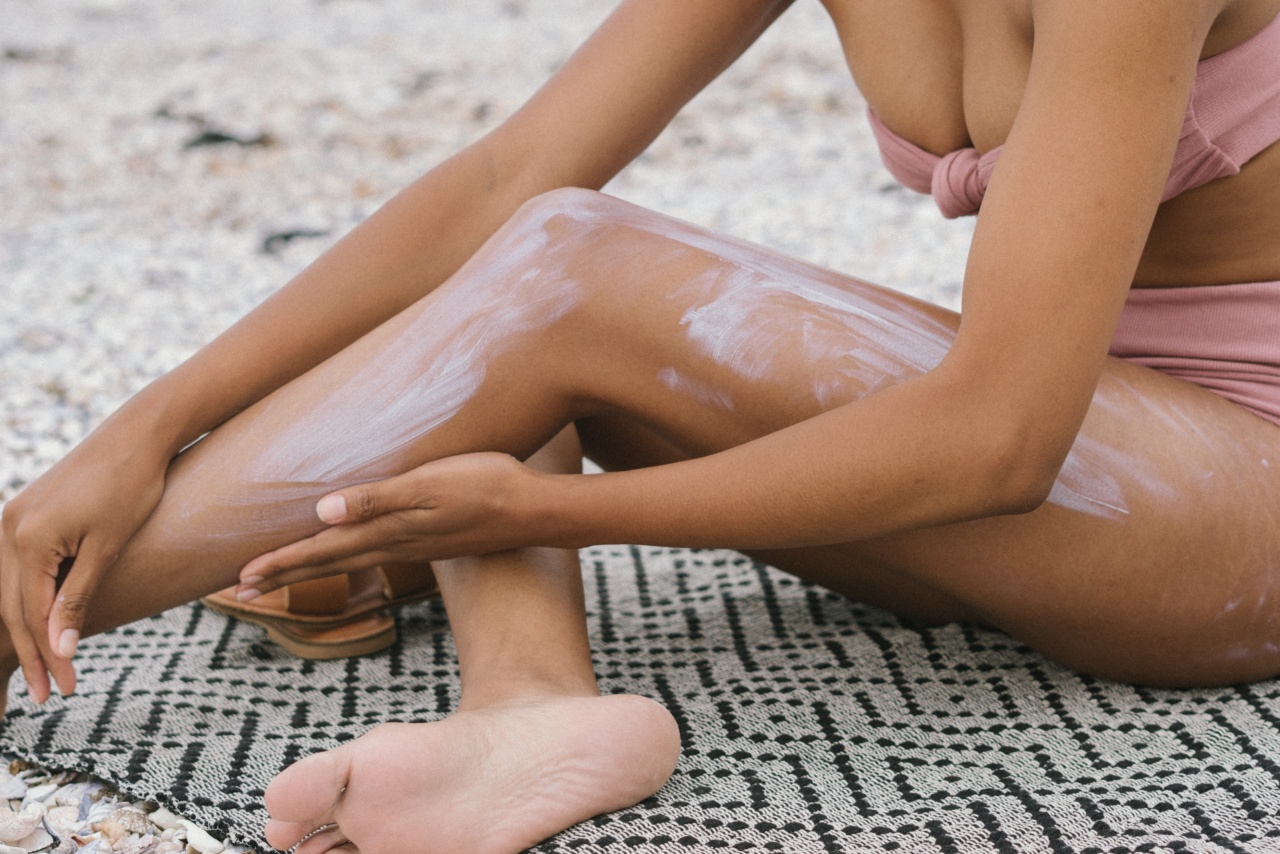As the summer months reach their peak in August, it is crucial to understand the importance of sunscreen. With the sun shining brightly and the temperatures soaring, it becomes essential to protect our skin from the harmful UV rays.
Sunscreen not only prevents sunburn but also reduces the risk of skin cancer and premature aging. In this article, we will delve into the reasons why sunscreen should be an integral part of your skincare routine this August.
H2: Protection Against Harmful UV Rays
The primary purpose of sunscreen is to shield our skin from the damaging effects of ultraviolet (UV) rays. The sun emits two types of rays that can reach the earth’s surface: UVA and UVB rays.
Both types are harmful to the skin and can cause various issues over time.
UVA rays are present throughout the year and can penetrate deep into the skin, leading to premature aging, wrinkles, and sunspots.
On the other hand, UVB rays are more intense during summer months and are responsible for sunburns and the development of skin cancer. Sunscreen provides a protective barrier that reduces the penetration of these harmful rays, safeguarding the skin from potential damage.
H2: Prevention of Sunburn
One of the most immediate and visible benefits of sunscreen is its ability to prevent sunburn. Sunburn is not only painful but also indicates skin damage caused by excess UV radiation.
By applying sunscreen generously on exposed areas of the skin, you can significantly reduce the chances of sunburn even during the hottest days of August.
Sunscreen with a high Sun Protection Factor (SPF) rating provides better protection against UVB rays, preventing sunburn. It is recommended to use a broad-spectrum sunscreen with an SPF of at least 30 to shield the skin effectively.
H2: Lower Risk of Skin Cancer
Multiple studies have shown that regular use of sunscreen can significantly reduce the risk of developing skin cancer. Skin cancer is the most common type of cancer, and its main cause is prolonged exposure to UV radiation.
By using sunscreen consistently, you can decrease the harmful effects of the sun on your skin cells and lower the risk of skin cancer.
It is crucial to apply sunscreen to all exposed areas of the skin, including the face, neck, arms, and legs. Remember to reapply every two hours, especially if you are spending extended periods outdoors or participating in water activities.
Water-resistant sunscreen can provide additional protection while swimming or sweating.
H2: Preservation of Youthful Appearance
Excessive sun exposure is known to accelerate the aging process, leading to wrinkles, fine lines, and age spots. Sunscreen acts as a shield against these harmful effects, preventing premature aging and helping maintain a youthful appearance.
By protecting the skin’s collagen and elastic fibers from UV damage, sunscreen helps preserve its elasticity and firmness. This reduces the appearance of fine lines and wrinkles, giving you a more youthful and vibrant look.
Incorporating sunscreen into your daily skincare routine can contribute to long-term skin health and beauty.
H2: Prevention of Hyperpigmentation
Hyperpigmentation is a common skin condition characterized by the darkening of certain areas of the skin. It can occur as a result of prolonged sun exposure without proper protection.
Sunscreen plays a vital role in preventing hyperpigmentation by blocking the UV rays that activate melanocytes, the cells responsible for producing skin pigmentation.
Whether you’re prone to freckles, dark spots, or melasma, sunscreen can help prevent these skin concerns from worsening.
By incorporating sunscreen into your daily skincare routine, you can maintain a more even skin tone and reduce the appearance of hyperpigmentation.
H2: Enhanced Skin Health
In addition to protecting against sun damage, sunscreen contributes to overall skin health. The sun’s rays can be harsh and can cause various skin issues beyond sunburn and skin cancer.
These include dryness, redness, irritation, and even inflammation.
Sunscreen acts as a barrier, shielding the skin from these harmful external factors. It helps maintain the skin’s natural moisture balance and reduces the risk of dryness and dehydration.
By protecting the skin’s surface, sunscreen enables it to function at its best, leading to healthier and more radiant-looking skin.
H2: Prevention of Sun Allergies and Sensitivities
Some individuals are more prone to sun allergies and sensitivities, experiencing rashes, hives, or itchy skin when exposed to sunlight. These allergic reactions can be caused by a variety of factors, including UV radiation.
Sunscreen acts as a protective barrier, minimizing the risk of allergic reactions and sensitivities triggered by the sun.
If you have a history of sun allergies or sensitivities, be sure to choose a sunscreen specifically formulated for sensitive skin.
Look for products that are fragrance-free, hypoallergenic, and dermatologist-tested to minimize the chance of adverse reactions.
H2: Prevention of Eye Damage
While applying sunscreen to your face, it’s crucial not to forget about protecting your eyes. Prolonged sun exposure can increase the risk of cataracts, macular degeneration, and other eye conditions.
To shield your eyes from harmful UV rays, wear sunglasses with UV protection and apply sunscreen around the eye area.
When selecting sunscreen for the face, choose products that are safe for use around the eyes. Apply a small amount of sunscreen to your finger and gently dab it around the eye area, being careful not to get any product into the eyes.
H2: Sunscreen Application Tips
Proper application of sunscreen is essential to ensure maximum effectiveness. Here are some tips to keep in mind:.
- Cover all exposed areas of the skin, including commonly missed areas like the ears, back of the neck, and tops of the feet.
- Apply sunscreen generously, using approximately one ounce (two tablespoons) to cover the entire body.
- Reapply sunscreen every two hours or more frequently if sweating heavily or engaging in water activities.
- Apply sunscreen at least 15-30 minutes before sun exposure to allow it to absorb into the skin.
- Choose a broad-spectrum sunscreen that protects against both UVA and UVB rays.
- Consider using a moisturizer or makeup product with built-in SPF for everyday protection.
- Store sunscreen in a cool, dry place, away from direct sunlight, to maintain its effectiveness.
H2: Conclusion
August, being a peak summer month, brings with it intense sun exposure and increased risks to our skin.
Protecting ourselves by regularly applying sunscreen is crucial to safeguard our skin from sunburn, premature aging, skin cancer, and other related issues. By making sunscreen a non-negotiable part of our daily skincare routine, we can retain a healthy and youthful complexion while enjoying the beautiful summer days.


























